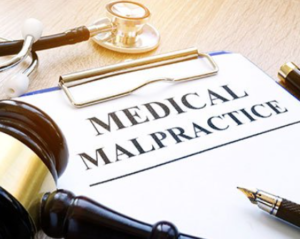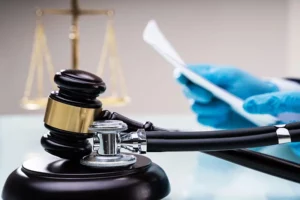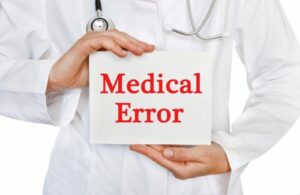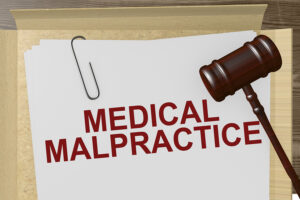DO I NEED A MEDICAL MALPRACTICE LAWYER? WHAT YOU NEED TO KNOW
Good health is undoubtedly the most valuable thing a person can have. However, it is also one of the most fragile things. There are many factors, such as bacteria, viruses, lifestyle habits, and even accidents that can compromise your health.
Data gathered by the National Center for Health Statistics (part of the Centers for Disease Control and Prevention) suggests that 145.6 million people visit the emergency room each year in the United States. Despite the vital role that hospitals and doctors play in improving people’s health and saving lives, their actions, at times, put their patients at risk.
Sadly, it occurs more often than one would imagine, and it usually has life-altering implications or results in death. According to a John Hopkins report, medical malpractice results in 250,000 deaths each year, making it the third leading cause of death in the United States.
WHAT IS MEDICAL MALPRACTICE?
When a patient goes to the hospital, the doctors and other healthcare professionals owe them a duty of care. This means that each patient should be accorded the medical care expected from a reasonably competent professional and per accepted medical standards. As per legal definitions, malpractice refers to a situation where a professional does not properly execute their duty to a client.
As such, medical malpractice refers to when health facilities or medical practitioners cause injury to a patient through negligent actions or failure to take necessary actions. Malpractice can occur at any stage of treatment, such as errors in diagnosis, during treatment, or with aftercare and health management.
Though the terms ‘medical negligence’ and ‘medical malpractice’ are often used synonymously, they have a subtle variation in meaning. Medical negligence refers to when the duty of care owed to patients is not delivered. It is the foundation of all medical malpractice cases. It is only when medical negligence results in injury or harm to the patient that medical malpractice arises.
Under the law, for a case to qualify as medical malpractice, it must meet the following criteria:
1. VIOLATION OF THE STANDARD DUTY OF CARE
To ensure consistency in healthcare, medical professionals should adhere to legal and medical standards when dealing with patients. Since circumstances vary, a crucial element for consideration is whether the doctor offered care as would be expected from a reasonably competent professional in the same situation.
This is the standard of care. Only when medical professionals fail to meet this standard of care does medical negligence take place.
2. NEGLIGENCE RESULTS IN INJURY
Don’t tolerate any form of medical negligence. However, for a medical malpractice case to stand, medical negligence alone is not sufficient. The violation of the standard of care must result in an injury that would not have otherwise occurred. Also, even if medical negligence leads to an unfavorable outcome with treatment, it does not qualify as malpractice if there is no direct injury.
3. SIGNIFICANT DAMAGES RESULTED FROM THE INJURY
An accusation of medical malpractice against an institution or doctor is not a matter to be taken lightly. It suggests that professionals who are under oath to protect lives act in a manner that puts life at stake. It can put their reputation and career at stake.
Before such a case is determined, there will be many hours of deposition, and the testimony of many medical experts will be needed, making such lawsuits very expensive. Based on the magnitude of such cases and the costs involved, patients must demonstrate that the injuries resulted in significant damages. If not, litigation costs will exceed the damages awarded. For a strong medical malpractice claim, a patient would have to demonstrate that the injuries caused a loss of income, disability, severe pain, significant medical bills, suffering, and hardship.
FORMS OF MEDICAL NEGLIGENCE
There are many ways in which healthcare providers can act negligently, translating to medical malpractice.
These include:
- Misdiagnosing or failing to diagnose a condition.
- Performing unnecessary surgery.
- Ignoring or misinterpreting lab results.
- Issuing the wrong medication or dosage.
- Surgical errors or performing surgery on the wrong part.
- Premature discharge.
- Poor aftercare.
- Not taking the patient’s history into account.
- Failure to recognize symptoms.
DAMAGES IN MEDICAL MALPRACTICE CASES
If your medical malpractice claim is successful, compensation awarded could cater to both economic and non-economic damages. If the victim succumbs to the injuries caused by medical negligence, surviving family members can recover damages via a wrongful death claim.
1. GENERAL DAMAGES
General damages cover the impact of injuries caused by medical negligence on a patient’s life. Some things that are hard to assign a monetary value to.
They include:
- Physical and mental pain and suffering
- Inability to enjoy life
- Loss of earning potential
2. SPECIAL DAMAGES
Though it is not always easy to assign a price, special damages cover effects that are much easier to quantify. These include missed work and medical expenses.
3. PUNITIVE DAMAGES
In addition to general and special damages, a patient may receive punitive damages, often determined by the judge. Such come in cases where the medical practitioner knew their actions could have harmful outcomes.
HOW MUCH CAN YOU EXPECT AS COMPENSATION?
Since each case is unique, no set amount or formula is used to arrive at a compensation value. For general damages and special damages, you must provide evidence of your pain, suffering, and costs incurred. Various experts will also have to testify for the judge to have a clear
Medical malpractice claims are complex and require a lot of experience. You will want to hire a medical malpractice attorney so that you can focus on recovering as they gather evidence and expert witnesses. Were you a victim of medical negligence? Not sure? Reach out to experienced Baltimore medical malpractice lawyers today for legal counsel.
Spector Law Group



































































































